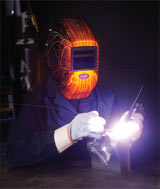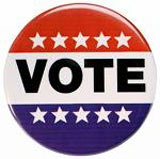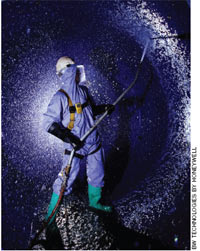
By Barry R. Weissman
PAPR. No, it has nothing to do with the clapper (Clap On, Clap Off), but it does have something to do with helping some of your employees breathe easier. A PAPR (pronounced PAP-er), or Powered Air Purifying Respirator, is a respirator of convenience for those employees who may be problematic into fitting in a regular respirator facepiece or for those jobs where you need cool air or where you need to have a high assigned protection factor (APF; more on that later).

By Jerry Laws
The Nov. 4 election gave voters a golden opportunity to revolutionize Washington's safety pantheon. Not only were seven of the 21 members of the U.S. Senate Health, Education, Labor, and Pensions (HELP) Committee either seeking re-election, the presidency, or retiring and leaving their seats open, but also eight of the 15 members of the Senate Appropriations Subcommittee on Labor, HHS, Education, and Related Agencies were running or leaving office -- and one of them, Republican Sen. Ted Stevens, 85, of Alaska, was convicted eight days before the election of seven federal felony charges of lying on his financial disclosure forms to hide $250,000 in gifts and home renovations. Alaska voters denied him a seventh term, early and absentee votes counted Nov. 18 indicated.

By Mike McGuire
Despite the very real risk that an influenza pandemic poses to U.S. businesses, studies and anecdotal evidence show there’s a disconnect between risk managers and the Csuite that can make it difficult for pandemic preparedness to receive the attention—and funding—that it deserves. This article will present strategies and new developments that risk managers can leverage to help improve understanding among senior management about the value of comprehensive pandemic planning and to secure C-suite support.

By Paul Holstein
Drop into any hardware store or home improvement center, and you're likely to find aisles full of tools labeled "ergonomic." But what exactly does that mean for consumers? Simply put, ergonomics is the science of designing and producing tools, furniture, and other work-related implements that improve a worker's efficiency while reducing discomfort, fatigue, and risk of injury.

By Shane McEwan
When it comes to hauling cargo such as liquefied natural gas (LNG), oil, or BTEX (benzene, toluene, ethylbenzene, xylenes), safety personnel must be made aware of all safety concerns, especially during transportation at sea. Marine personnel can potentially be exposed to dangers that include oxygen deficiency or enrichment, explosive gases, and toxic effects from cargo and maintenance chemicals.
By Linda J. Sherrard
Surveying the dismal outlook for the economy in the upcoming months (years?), many of us ol' timers know safety is often one of the first areas managers cast a "cutback" eye upon when the economy turns sour. Many industries already are seeing this, with open safety positions being left dormant or abolished. Budgets are being slashed; and the use of extra skilled and unskilled help is being reduced or eliminated.
By Robert Pater
Many organizations have encountered resistance or noncompliance trying to get plant-bound employees to work safely. This despite reminders, threats, or tomes of policies and procedures (some so ponderous they might create back problems from lifting them). So what chance do you have of inculcating safety checkoffs, judgment, and actions with people who receive minimal or no supervision, who work outside and perhaps check in only occasionally? Actually, a lot, if you approach it the right way—slim, if you don’t.
By Jerry Laws
What OSHA hasn’t done has been much discussed this year, but I believe our focus is about to change. The 2009 shift to an active OSHA may be dramatic or subtle, depending on how the Nov. 4 elections affect congressional oversight and appropriations committees and then on how quickly a new president and Congress act.